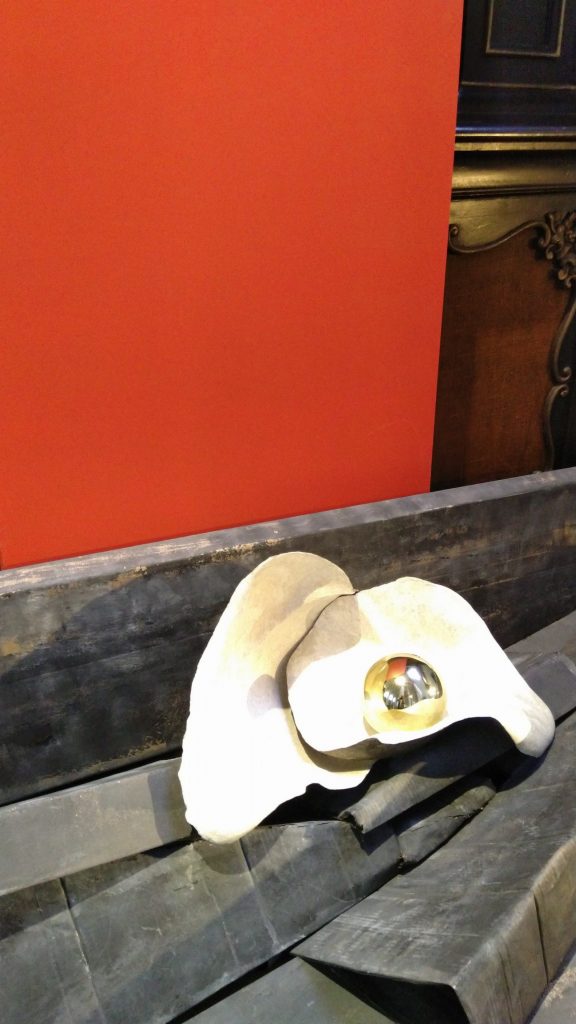
Ein Weihnachtsbild – gefunden in der Aachener Citykirche St. Nikolas (ohne Titel und Künstler) – dazu ein paar theologische Gedanken fürs neue Jahr.
Brian McLaren, ” The Great Spiritual Migration” (Convergent 2016, page 2-3 / 42):
For centuries, Christianity has been presented as a system of beliefs. That system of beliefs has supported a wide range of unintended consequences, from colonialism to environmental destruction, subordination of women to stigmatization of LGBT people, anti-Semitism to Islamophobia, clergy pedophilia to white privilege. What would it mean for Christians to rediscover their faith not as a problematic system of beliefs, but as a just and generous way of life, rooted in contemplation and expressed in compassion, that makes amends for its mistakes and is dedicated to beloved community for all? Could Christians migrate from defining their faith as a system of beliefs to expressing it as a loving way of life? . . .
For centuries, Christians have presented God as a Supreme Being who showers blessings upon insiders who share certain beliefs and proper institutional affiliation, but who punishes outsiders with eternal conscious torment. Yet Jesus revealed God as one who “eats with sinners,” welcomes outsiders in, and forgives even while being rejected, tortured, and killed. Jesus associated God more with gracious parental tenderness than strict authoritarian toughness. He preached that God was to be found in self-giving service rather than self-asserting domination. What would it mean for Christians to let Jesus and his message lead them to a new vision of God? What would it mean for Christians to understand, experience, and embody God as the loving, healing, reconciling Spirit in whom all creatures live, move, and have their being?
For centuries, Christianity has presented itself as an “organized religion”—a change-averse institution or set of institutions that protects and promotes a timeless system of beliefs that were handed down fully formed in the past. Yet Christianity’s actual history is a story of change and adaptation. We Christians have repeatedly adapted our message, methods, and mission to the contours of our time. What might happen if we understood the core Christian ethos as creative, constructive, and forward-leaning—as an “organizing religion” that challenges all institutions (including its own) [as Jesus did] to learn, grow, and mature toward a deepening, enduring vision of reconciliation with God, self, neighbor, enemy, and creation? . . .
If such a migration is possible, how would we describe that way of life toward which we are moving?